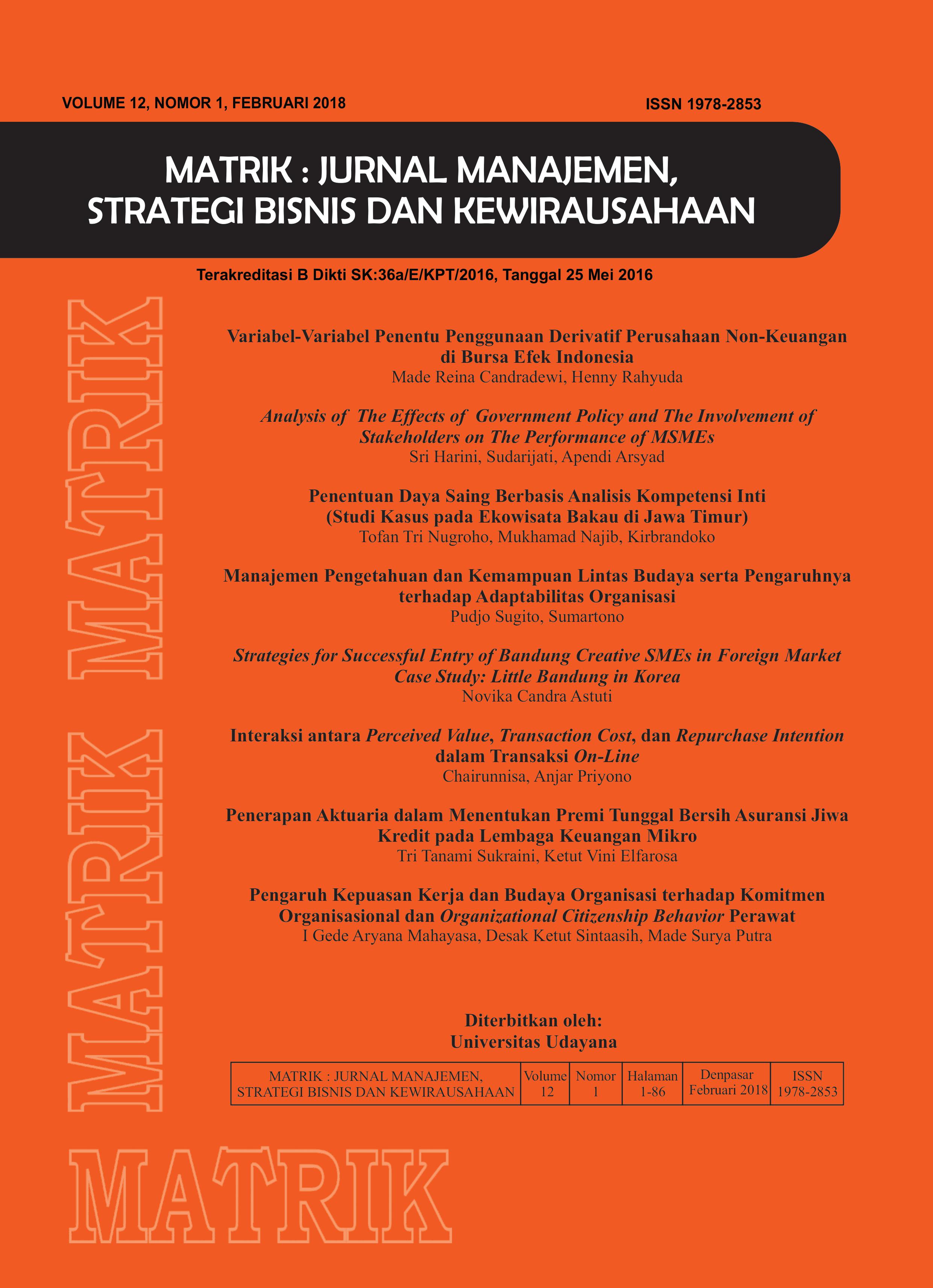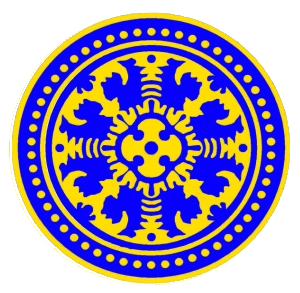MANAJEMEN PENGETAHUAN DAN KEMAMPUAN LINTAS BUDAYA SERTA PENGARUHNYA TERHADAP ADAPTABILITAS ORGANISASI
Abstract
The aim of this research is to analyze the effect of knowledge management and cross cultural competence to the organizational adaptability. The research population are small and medium industries in Malang, amounting to 279 103 units (the Department of Cooperatives and SMEs, 2015). Data collection techniques used is proportional random sampling that is a unit sample selected based on certain considerations in order to obtain samples with specific characteristics. The number of respondents in this research determined the 200 respondents who are performing well, as a minimum requirement that is needed in data analysis techniques Structural Equation Model (SEM). Gradually, it will use two kinds of analysis techniques (1) factor analysis, is used to confirm the factors most dominant variable in one group and (2) regression weight in SEM, used for confirmatory examine how much the relationship between variables. Based on the results of data analysis revealed that knowledge management and cross cultural competency significantly effect to the organizational adaptability.
Downloads
References
Davies J., Fidler H. & Gorbis W., (2013), Transdisciplinary Research, Transformative Learning and Transformative Science, International Jurnal of Bioscience, July 2013, Vol. 63 No. 7.
Ferdinand A., (2009), Structural Equation Modeling, Edisi revisi, Penerbit Salemba Empat, Jakarta
Hsieh, S.C., Lin, J.S.dan Lee, H.C. (2012), Analysis on Literature Review of Competency, International Review of Business and Economics, Vol.2, pp.25-50, October.
Hana U., (2013), Competitive Advantage Achievement through Innovation and Knowledge, Journal of Competitiveness, Vol. 5, Issue 1, pp. 82-96, March.
Kosasih, Ida and Budiani, Sri (2008), The Knowledge Management in The Creative Industries, Jurnal of International Business Studies (JIBS), Volume 33, George Washington University, Washington.
Martín G., Delgado M., Navas J.E. & Cruz J., (2013). The moderating role of innovation culture in the relationship between knowledge assets and product innovation, Technological Forecasting and Social Change Journal, Vol. 2, pp 351-363, January.
Noruzy, A., Dalfard, V.M., Azhdari, B., Nazari-Shirkouhi, S. & Rezazadeh, A. (2013). Relationship between transformational leadership, knowledge management, organizational innovation and organizational performance, The International Journal of Advanced Manufacturing Technology, Vol. 2, pp 64(5-8), July.
Okoro E., (2013), International Organizations and Operations: An Analysis of Cross-Cultural Communication Effectiveness, Journal of Business & Management, Vol.1 No 1.
Reeves, M. & Deimler, M (2013), New Bases of Competitiva Advantage, Harvard Business Review, Vol. 1, No. 5, November–December.
Roy S., (2012), Virtual Collaboration: The Skills Needed to Collaborate in a Virtual Environment, Journal of Internet Social Networking & Virtual Communities, Vol. 20, 12.
Segalas, S. dan Tajedor, G. (2013), Transdiciplinarity. A must for sustainable education, 41th SEFI Conference, 16-20 September 2013, Leuven, Belgium
Sugito, P. & Kamaludin, (2016), Adaptabilitas dan Keunggulan Bersaing, Jurnal Manajemen dan Kewirausahaan, Vol 3, No. 1, FEB Unmer Malang.
Keywords
 This work is licensed under a Creative Commons Attribution-ShareAlike 4.0 International License.
This work is licensed under a Creative Commons Attribution-ShareAlike 4.0 International License.

















